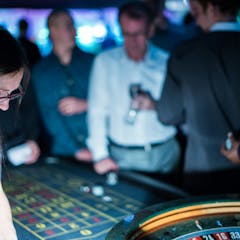
Articles on Neuroscience
Displaying 561 - 580 of 685 articles

Electronic engineers are emerging as important contributors to understanding of the workings of the human brain. There is a rapidly growing intersection between electronic engineering and neuroscience…

Psychedelic drugs alter consciousness in a profound and novel way that increases the breadth and fluency of cognition. However, until recently, we were unable to offer an explanation for how the brain…

Synaesthesia is a relatively rare condition that gives people extraordinary perceptual experiences from everyday normal sensory input. For example, someone with synaesthesia might be able to taste or hear…

It’s often argued that technological innovation in medicine is key to improving healthcare, and there is no doubt that brain-scan technology such as fMRI is at the forefront of our understanding of the…

As smartphones have become ubiquitous, parents and teachers have voiced concerns that a technology-rich lifestyle is doing youngsters harm. Research on this question is still in its infancy, but other…

In the second instalment of Biology and Blame, Neil Levy considers how neuroscience can affect legal judgements. Can human beings still be held responsible in the age of neuroscience? Some people say no…

The Conversation organised a public question-and-answer session on Reddit in which Barbara Sahakian, professor of Clinical Neuropsychology at Cambridge University, discussed subjects from depression to…

Just prior to him leaving office, I was asked by John Beddington, the UK’s chief scientific adviser, to scope the future of neuroscience over the next ten years. It seemed to me that the best way to consider…

Memories from early childhood are notoriously elusive but why can’t we recall our most formative experiences? New research suggests it could be a case of the old making way for the new – neurons, that…

Imagine yourself, a picture of sartorial elegance and sipping champagne from a crystal flute, in Le Grande Casino at Monte Carlo. It is a Monday night – in fact, the date is August 18, 1913 – and you are…

Given the media coverage brain imaging studies get, you might think that they are constantly revealing important secrets about this mysterious organ. Catherine Loveday thinks otherwise. She makes the point…

Visual illusions, such as the rabbit-duck (shown above) and café wall (shown below) are fascinating because they remind us of the discrepancy between perception and reality. But our knowledge of such illusions…

Never before have we been such compulsive multitaskers, blogging and tweeting using multiple devices and smartphones anywhere and everywhere, from trains to cafes. It seems a little backwards, then, that…

Imagine you’ve suddenly been given a job as a car mechanic but there’s a slight hitch: you know nothing whatsoever about cars, there are no books to help you, no internet and no-one who is willing to tell…

Many amputees experience pain in their missing limbs, but allowing them to “see” their missing limbs in action through augmented reality technology may help alleviate this phantom limb pain (PLP), a case…

The structure of the brain reveals a network of massively interconnected electrochemically active cells. It is known that information can be represented by changes of state within this network, but that…
Music and language seem to be processed in the same part of the brain, a new study has found. Researchers studied the brain…

In times of financial uncertainty and crisis, high stress reactions lead to traders becoming more risk averse, which drives pessimism and further falls in finance, according to a new study. This is because…

This Sunday marks the 50th anniversary of John, Paul, George, and Ringo’s debut appearance on The Ed Sullivan Show in the US. But what was it about? Was it the moptop haircuts, Cuban heels, and “yeah yeah…

Memory is an essential part of our existence. Who we are, what we know and what we think can all be derived from our ability to remember. How reliable, though, are our memories? A study, published in the…
